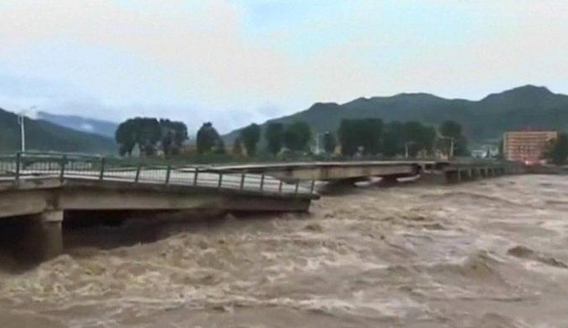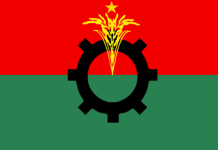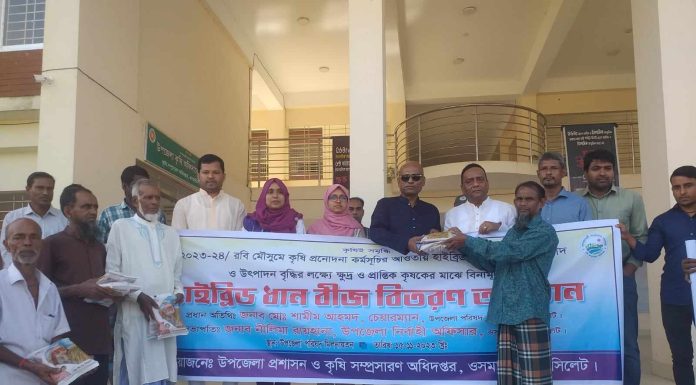North Korean leader Kim Jong-un has called on the military to carry out relief work in areas recently hit by heavy rains, state media report.More than 1,000 homes were damaged and about 5,000 people evacuated after the ensuing flooding, state television reported earlier this week.
The move comes amid concerns over an economic crisis and food shortages.
Agricultural land has been damaged, and Kim Jong-un said in June the country faced a “tense” food situation.
He said at the time the agricultural sector had failed to meet its grain targets due to typhoons last year, which caused flooding, and that much would depend on this year’s harvest.
Footage from the state-run KCTV showed homes flooded up to their roofs, as well as damaged bridges and railroads in the eastern province of South Hamgyong. It also said about 17km (10 miles) of roads and bridges had been damaged.
The report said “hundreds of hectares of farmland” were also submerged or lost as river levees collapsed, AFP news agency reports.
The ruling Workers’ Party’s Central Military Commission held a meeting on Thursday to discuss recovery from the disaster, the official KCNA news agency said.
Mr Kim did not attend the meeting, but party officials conveyed his message that the military should provide necessary supplies in the region, KCNA said.
With the soil already saturated, further rains could cause more damage.
Heavy rain was forecast until 10 August, with eastern areas expected to be particularly hit, according to the country’s meteorological agency.
North Korea is struggling under international sanctions, imposed because of its nuclear programme.
The country has also closed its borders to contain the spread of Covid-19, leading to trade with China – which North Korea relies on for food, fertiliser and fuel – plummeting as a result.
North Korea suffered from a nationwide famine in the 1990s after the fall of the Soviet Union left it without crucial aid. The total number of people who starved to death at the time is not known, but estimates range up to three million.

















